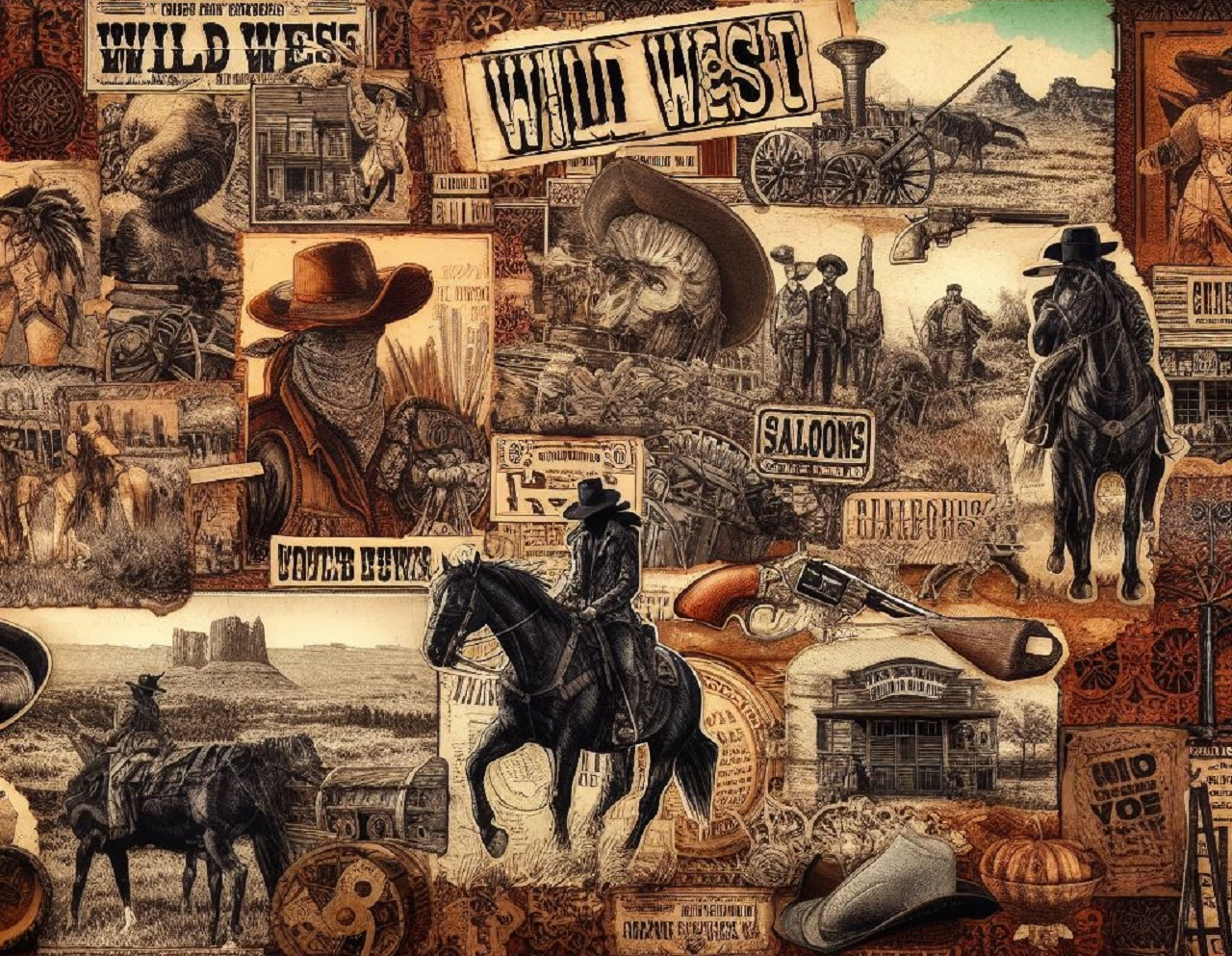
In this article, we embark on a journey to unravel the code of the West.
We will delve into the principles that shaped a frontier society, exploring the historical context, cultural factors, and influences from Native American and European traditions.
Our aim is to unpack the fundamental principles that guided daily life on the frontier, from maintaining order and justice to the impact on interpersonal relationships.
We will also delve into the myths and Hollywood portrayals surrounding this intriguing code, seeking to uncover the truth behind the code that epitomized the spirit of freedom.
Join us in this exploration as we uncover the secrets of the code that defined the West.
The Historical Context of the American Frontier
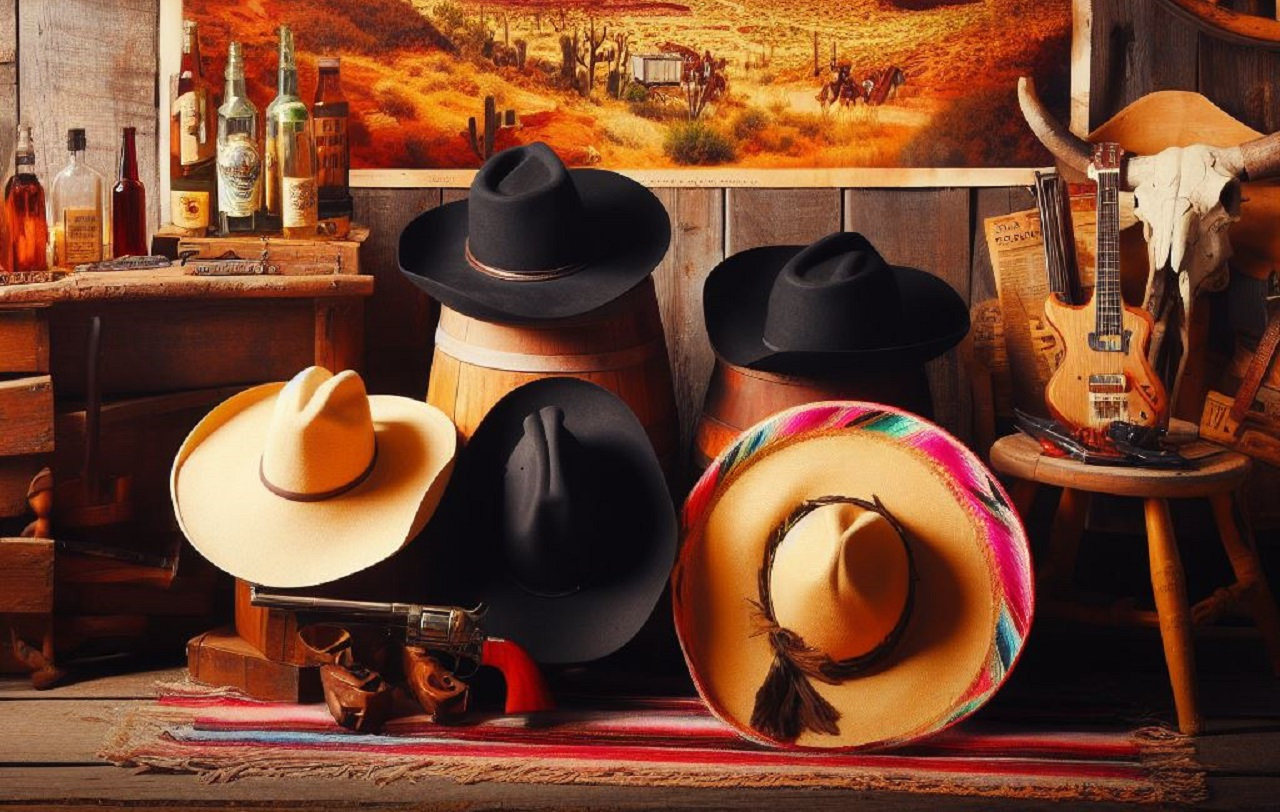
The historical context of the American Frontier is a fascinating subject that sheds light on the development and challenges faced by early settlers in this vast and untamed land. The economic factors of the American frontier played a crucial role in shaping the society that emerged. The lure of vast natural resources such as timber, fur, and minerals attracted adventurous individuals seeking opportunities for wealth and prosperity. These economic factors fueled westward expansion and led to the establishment of towns and cities, as well as the development of industries such as mining, agriculture, and trade.
In this frontier society, the role of women was also significant, although often overlooked. Women played a vital role in maintaining the fabric of society, taking on responsibilities such as managing households, raising children, and supporting their husbands' endeavors. They were instrumental in establishing social order, providing education, and ensuring the well-being of their families. Despite the challenges and hardships they faced, women on the frontier exhibited resilience, adaptability, and a pioneering spirit that contributed to the growth and development of the American West.
The Cultural Factors Behind the Code of the West
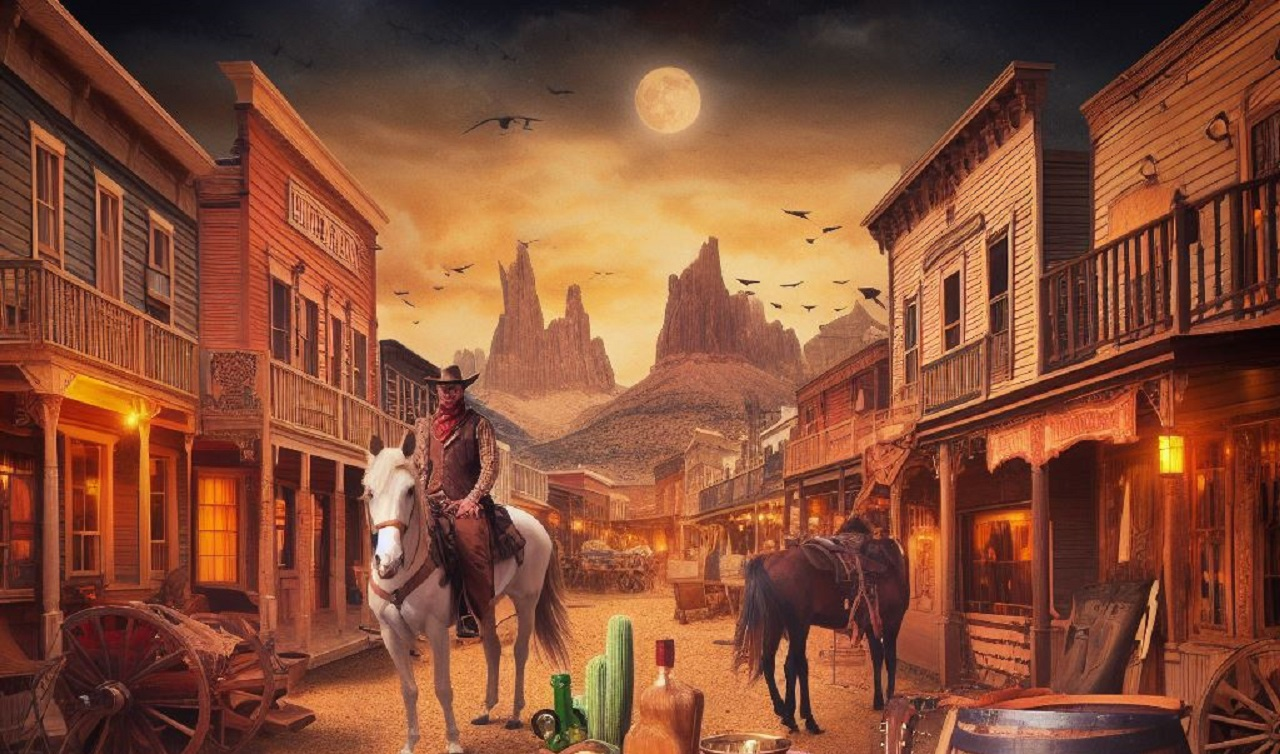
Religion, with its strong presence and influence in the lives of early settlers, played a pivotal role in shaping the cultural values and moral compass that gave rise to the Code of the West. The American frontier was a place where people sought refuge and freedom, and the religious beliefs of these settlers greatly influenced their way of life.
The predominant religious groups, such as the Protestants and Catholics, upheld principles of honesty, integrity, and hard work. These cultural influences shaped societal norms that emphasized self-reliance, individualism, and the importance of community.
The cowboy code emerged as a set of unwritten rules that governed behavior, promoting fairness, justice, and respect for others. These cultural factors were essential in maintaining order and harmony in a society built on the principles of freedom and independence.
Exploring Native American and European Influences
Native American tribes and European settlers had a significant impact on the development of this code, shaping the frontier society through their distinct cultural influences. The merging of Native American and European traditions resulted in a unique set of values and principles that guided the lives of those living on the frontier.
Some of the key influences include:
- Respect for nature and the land: Native American tribes had a deep connection to the land and placed great importance on living in harmony with nature. This reverence for the environment influenced the Western settlers to develop a strong sense of stewardship and respect for the land they inhabited.
- Individualism and self-reliance: Both Native American tribes and European settlers valued independence and self-sufficiency. The rugged frontier demanded individuals to be self-reliant, and this spirit of individualism became an integral part of the Code of the West.
- Honor and integrity: Native American tribes had a strong code of honor and integrity, which emphasized truthfulness, loyalty, and keeping one's word. European settlers, influenced by these values, placed great importance on honesty and honor in their interactions with others.
- Courage and resilience: The Native American tribes and European settlers faced numerous challenges and hardships on the frontier. Their ability to persevere and navigate through adversity became a defining characteristic of the Code, inspiring future generations to exhibit courage and resilience.
The blending of Native American and European influences played a crucial role in shaping Americas own unwritten code, creating a society that valued freedom, independence, and the pursuit of a better life on the frontier.
Unpacking the Fundamental Principles of the Code
One can gain a deeper understanding of the Code or cowboy ethics by unpacking its fundamental principles, which guided the behavior and values of frontier society.
This code, rooted in principles of freedom, individuality, and self-reliance, has left a lasting legacy on the American frontier and beyond.
The Code emphasized the importance of personal honor, integrity, and respect for others. It promoted the idea that individuals are responsible for their own actions and should be accountable for their behavior.
This code also had a significant impact on gender roles, as it valued the strength and resilience of both men and women in the face of adversity. Women played a critical role in the frontier society, often taking on responsibilities traditionally associated with men.
The Code, with its principles of freedom and equality, challenged traditional gender norms and opened up new possibilities for women on the frontier.
Daily Life on the Frontier: Living by the Code
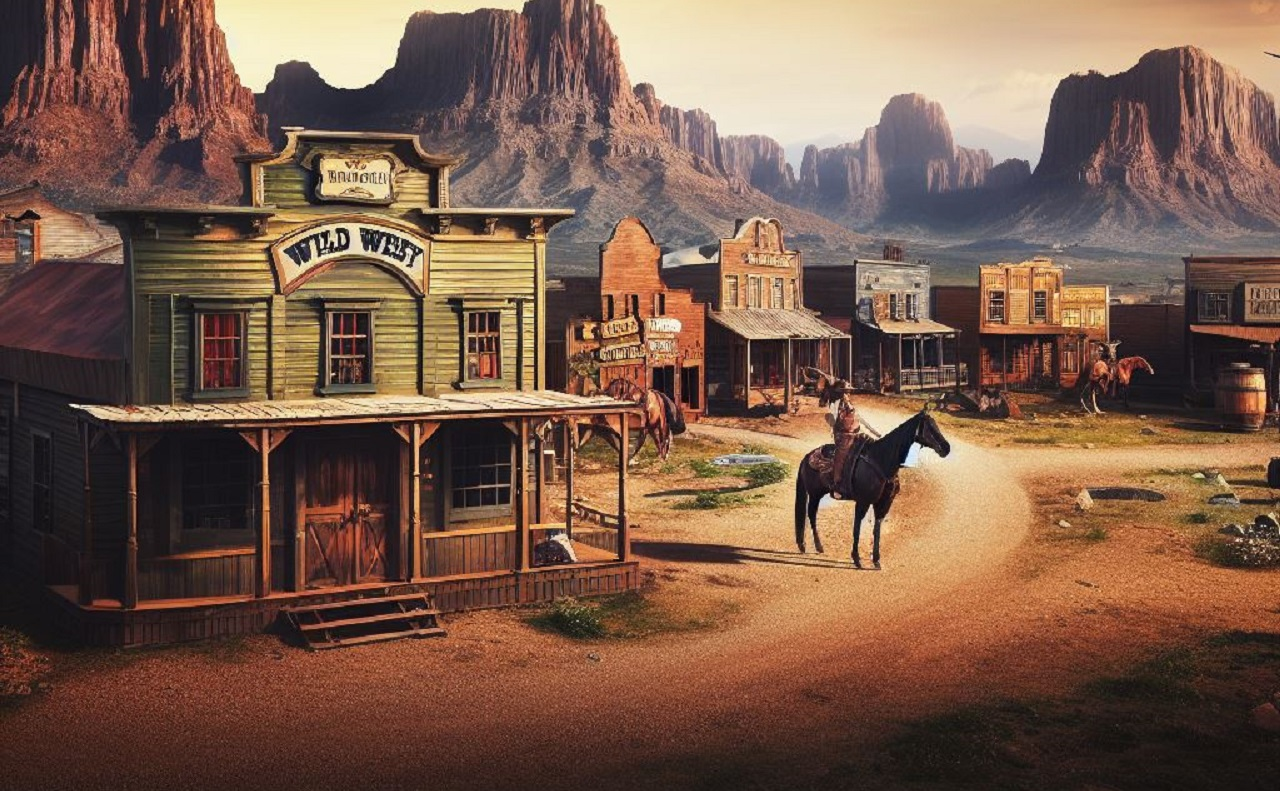
Frontiersmen and women adhered to the unwritten rules in their daily lives, embodying the values of self-sufficiency, resilience, and community.
Living on the frontier brought forth a unique set of daily challenges that tested their survival skills. To navigate this harsh environment, they relied on their resourcefulness and adaptability, facing threats from unpredictable weather, wild animals, and isolation.
The Code of the West guided them in their interactions with others, emphasizing honesty, loyalty, and a sense of fairness.
In their pursuit of freedom and independence, frontiersmen and women formed tight-knit communities, where cooperation and mutual support were essential. They understood that relying solely on oneself was not enough, and the strength of their community was crucial for survival.
Maintaining Order and Justice in Lawless Frontier Towns
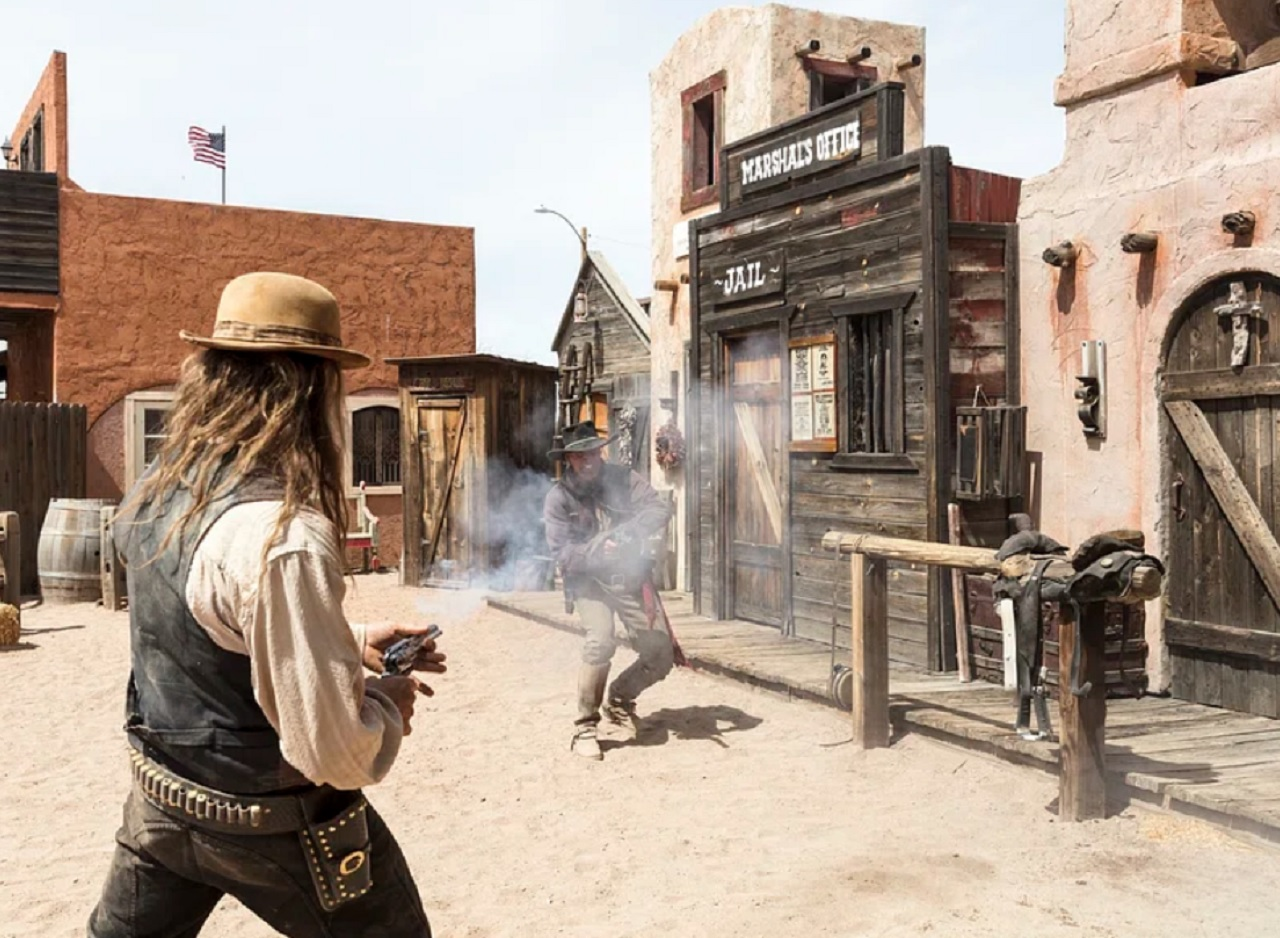
Several strategies were employed to maintain order and dispense justice in the lawless frontier towns of the American West. In these towns, where law enforcement was often non-existent or inadequate, the residents had to rely on their own systems of governance to ensure order and justice prevailed.
One common approach was the establishment of vigilante committees, composed of respected community members who took it upon themselves to enforce the law. These committees would investigate crimes, apprehend suspects, and administer swift and sometimes harsh justice.
Additionally, frontier towns often relied on the concept of community self-policing, where residents would collectively watch out for one another's safety and report any suspicious or criminal activities to the authorities. This sense of communal responsibility played a crucial role in maintaining order and justice in the lawless frontier towns of the American West.
The Impact of the Code on Interpersonal Relationships
The Code of the West, a set of principles that guided individuals in frontier society, had a profound impact on interpersonal relationships. Trust and loyalty were highly valued and formed the foundation of social interactions. People relied on these principles to navigate the challenges of a lawless and unpredictable environment.
Additionally, conflict resolution strategies were developed to maintain harmony and ensure the survival of the community. Through the Code, individuals forged strong bonds and established a sense of community that was essential for their collective well-being.
Trust and Loyalty
Exemplifying the core values of honor and integrity, individuals within the frontier society forged unbreakable bonds of trust and loyalty. These values formed the foundation of their interpersonal relationships and played a significant role in shaping their community. The importance of honor and reputation cannot be overstated in this context, as they served as the bedrock upon which trust and loyalty were built.
- Unwavering Commitment: People in the frontier society were known for their unwavering commitment to their word and promises. They believed that their word was their bond, and their actions consistently reflected their commitment to their promises.
- Mutual Support: The frontier society valued mutual support and stood by each other in times of adversity. They understood the notion that together, they were stronger and relied on one another for support and protection.
- Shared Sacrifice: Trust and loyalty were nurtured through shared sacrifice. Individuals were willing to put the needs of the community above their own, demonstrating their dedication and loyalty to the collective well-being.
- Utmost Dependability: The frontier society valued dependability above all else. People could rely on one another to fulfill their obligations and responsibilities, knowing that their trust would never be betrayed.
Conflict Resolution Strategies
Through their adherence to a shared set of principles and values, individuals within the frontier society developed effective conflict-resolution strategies that promoted harmonious interpersonal relationships.
In such a society where freedom and independence were highly valued, mediation techniques and negotiation skills played a crucial role in resolving conflicts and maintaining social order.
Mediation was often used as a way to bring opposing parties together and facilitate open dialogue. Skilled mediators were respected members of the community who had the ability to listen impartially and help find common ground.
Negotiation skills were also highly valued, as individuals recognized the importance of compromise and finding mutually beneficial solutions.
The frontier society understood that conflict was inevitable, but it was the way conflicts were resolved that determined the strength and harmony of their interpersonal relationships.
Debunking Myths and Hollywood Portrayals of the Code

To truly understand the cowboy code, it is essential to debunk the myths and Hollywood portrayals that have shaped our perception of this frontier society. Hollywood has often distorted the realities of the Code, perpetuating stereotypes and romanticizing the Old West.
Hollywood's Distorted Portrayals
Despite its romanticized and often inaccurate depictions, Hollywood has played a significant role in shaping popular perceptions of the cowboy code. While these portrayals have captivated audiences and fueled their imagination, it is important to recognize that they are far from accurate historical representations.
Hollywood's misrepresentations have perpetuated several myths surrounding the Code of the West, distorting the reality of life on the frontier. These misrepresentations include:
- The romanticized image of the real Cowboys as a fearless hero, always ready for a shootout.
- The portrayal of Native Americans as savage and bloodthirsty villains, ignoring their rich and diverse cultures.
- The idea that justice was solely achieved through vigilante actions, disregarding the role of law enforcement.
- The glorification of violence, overlooking the hardships and struggles faced by those living in the West.
Origins of the Code
The accurate understanding of the origins of the Code of the West requires debunking the myths and Hollywood portrayals that have influenced popular perceptions of this frontier society. While Hollywood has romanticized the Wild West and perpetuated certain stereotypes, it is important to dig deeper and explore the true origins of the Code.
This evolved from a combination of various influences, including the customs and traditions of European settlers, Native American cultures, and the demands of life on the frontier. It was not a formal set of rules, but rather a shared understanding of how individuals should conduct themselves in the lawless and untamed West. Over time, this unwritten code became ingrained in the fabric of the frontier society, shaping the behavior and values of its inhabitants.
The origins and evolution of the Code of the West highlight the adaptive nature of this frontier society, as it sought to establish a sense of order and justice in a challenging and unpredictable environment.
Real-Life Examples
While many Hollywood portrayals of the Code of the West perpetuate myths and stereotypes, real-life examples offer a more accurate understanding of how this code influenced the behavior and values of individuals in frontier society. These practical applications of the code were not always glamorous or heroic, but they were essential in maintaining order and justice in the Wild West.
- Community Cooperation: In towns like Dodge City, citizens worked together to enforce the law and protect their community from outlaws.
- Self-Reliance: Homesteaders relied on their own skills and resourcefulness to survive in the harsh and unpredictable environment of the frontier.
- Respect for Property: Cowboys understood the importance of respecting others' property, knowing that theft and vandalism would disrupt the fragile social fabric of the community.
- Justice: Vigilante groups, while controversial, sometimes played a necessary role in meting out justice when the official legal system was absent or corrupt.
These real-life examples demonstrate the practical applications of the Code of the West, showing how it shaped the behavior and values of individuals in a society that valued freedom and independence.
Frequently Asked Questions
What Were Some Common Occupations on the American Frontier?
Common occupations on the American frontier included homesteading and ranching. These jobs required resilience, adaptability, and a deep connection to the land. They played a crucial role in shaping the frontier society and embodying the spirit of freedom and self-reliance.
How Did It Influence the Development of Frontier Towns?
The code of the west had a significant influence on the development of frontier towns. It shaped town planning by promoting self-sufficiency and community cooperation. Additionally, it impacted law enforcement by emphasizing individual responsibility and a sense of justice.
Were There Any Notable Conflicts Between Native Americans and European Settlers That Shaped the Code of the West?
Notable conflicts between Native Americans and European settlers profoundly influenced and shaped the code of the West, impacting the development of frontier society. These conflicts played a crucial role in defining the principles that governed interactions and relationships in the region.
How Did It Affect Gender Roles and Expectations on the Frontier?
Exploring gender roles on the frontier and the impact of the code of the west on women reveals a complex and nuanced understanding of the societal expectations and constraints faced by women in a frontier society.
Did the Code Persist and Influence Society Beyond the Era of the American Frontier?
The Code of the West continues to persist and influence modern Western culture. Its legacy can be seen in literature, where it has shaped the portrayal of frontier society and its principles.






